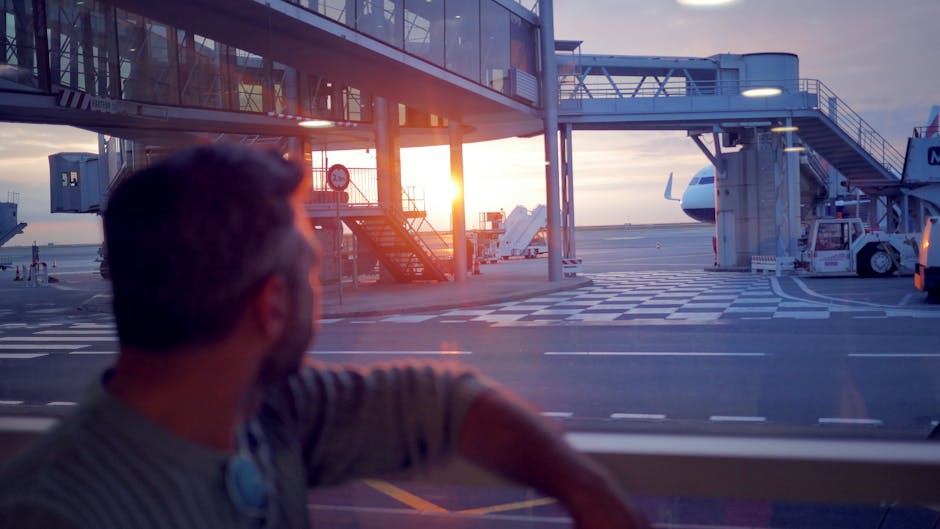Exploring Travel Trends Shaping the Future
Travel has always been an integral part of human life, allowing us to explore new cultures, connect with people from different backgrounds, and create lasting memories. As we move into the future, the way we travel is evolving rapidly, driven by technological advancements, changing consumer preferences, and global trends. In this article, we will delve into the key travel trends shaping the future, from sustainable tourism to experiential travel, and explore how these trends are redefining the way we experience the world.
The Rise of Sustainable Tourism

One of the most significant trends shaping the future of travel is the increasing focus on sustainable tourism. With growing awareness of environmental issues and the impact of travel on local communities, travelers are seeking eco-friendly and responsible travel options. From eco-friendly accommodations to carbon-neutral transportation, the tourism industry is adapting to meet the demands of conscientious travelers.
For example, many hotels and resorts are implementing green initiatives such as energy-efficient lighting, water-saving fixtures, and recycling programs to reduce their carbon footprint. Airlines are also exploring biofuel options and investing in more fuel-efficient aircraft to minimize their environmental impact. Additionally, travelers are choosing to support local communities by opting for homestays, local tours, and sustainable experiences that benefit the host destination.
According to a recent survey, 87% of global travelers stated that they want to travel sustainably, and this number is expected to rise in the coming years. Sustainable tourism is not only a trend but a necessity for the future of travel, as travelers become more conscious of their environmental footprint and seek meaningful ways to explore the world responsibly.
Embracing Technology in Travel

Technology is revolutionizing the way we travel, making it easier, more convenient, and personalized. From booking flights and accommodations to navigating unfamiliar destinations, travelers are increasingly relying on technology to enhance their travel experiences. Mobile apps, virtual reality, artificial intelligence, and data analytics are just some of the tech trends shaping the future of travel.
For instance, mobile apps like Google Maps and TripAdvisor provide real-time information on navigation, reviews, and recommendations, helping travelers make informed decisions on the go. Virtual reality (VR) technology allows travelers to experience destinations before they even arrive, offering a preview of hotels, attractions, and activities. Artificial intelligence (AI) is being used to personalize travel recommendations, predict traveler preferences, and improve customer service.
Moreover, data analytics is helping travel companies understand consumer behavior, optimize pricing strategies, and enhance the overall travel experience. For example, airlines use data analytics to predict flight demand and adjust ticket prices accordingly, while hotels analyze guest feedback to improve service quality. Technology is not only shaping the future of travel but also transforming the way we plan, book, and experience our journeys.
The Rise of Experiential Travel

Experiential travel is gaining popularity among travelers seeking authentic, immersive, and meaningful experiences. Instead of simply visiting tourist attractions, travelers are now looking for opportunities to connect with local cultures, traditions, and communities. This trend is reshaping the way we travel, emphasizing quality over quantity and experiences over things.
For example, travelers may choose to participate in cooking classes with local chefs, embark on wildlife safaris with conservation experts, or stay in traditional homestays to immerse themselves in the local way of life. Experiential travel allows travelers to create lasting memories, forge genuine connections, and gain a deeper understanding of the places they visit.
According to a recent survey, 76% of travelers prefer to spend money on experiences rather than material possessions, reflecting the shift towards experiential travel. This trend is not only influencing the types of trips people take but also the activities they engage in and the memories they cherish. Experiential travel is all about creating moments that matter and leaving a positive impact on both travelers and the destinations they visit.
Personalization and Customization in Travel

In an era of personalized experiences and tailored services, travelers are increasingly seeking customized travel options that cater to their individual preferences and interests. Whether it’s creating bespoke itineraries, selecting unique accommodations, or curating specialized tours, the demand for personalized travel experiences is on the rise.
Travel companies are responding to this trend by offering personalized recommendations, exclusive perks, and customized services to cater to the diverse needs of travelers. For example, luxury hotels may provide personalized welcome amenities, private butler services, and tailored dining experiences for guests seeking a more exclusive stay. Tour operators may offer customized excursions, private guides, and VIP access to attractions for travelers looking for a more personalized exploration.
Personalization in travel goes beyond just the booking process; it encompasses every aspect of the travel journey, from pre-trip planning to post-trip memories. By tailoring experiences to individual preferences and creating meaningful connections, travel companies are transforming the way we travel, making each journey unique, memorable, and truly personal.
The Impact of Global Events on Travel
Global events, such as pandemics, natural disasters, political unrest, and economic crises, have a significant impact on the travel industry, shaping traveler behavior, preferences, and trends. The COVID-19 pandemic, in particular, has brought about unprecedented changes in the way we travel, from health and safety protocols to travel restrictions and border closures.
As the world grapples with the ongoing effects of the pandemic, travelers are adapting to new norms, such as mask-wearing, social distancing, and increased hygiene practices. The rise of remote work and digital nomadism has also influenced travel trends, with more people opting for extended stays, workations, and nomadic lifestyles. The pandemic has accelerated trends such as contactless check-ins, touchless technology, and flexible booking options to meet the changing needs of travelers.
Looking ahead, global events will continue to shape the future of travel, influencing where and how we travel, the types of experiences we seek, and the values we prioritize. By staying informed, adaptable, and resilient, the travel industry can navigate these challenges and emerge stronger, more sustainable, and better prepared for the future.
Collaboration and Community Engagement in Travel
Collaboration and community engagement are becoming key drivers of travel trends, fostering partnerships between travelers, local communities, businesses, and governments. By working together, stakeholders can create shared value, promote responsible tourism, and support sustainable development in the travel industry.
For example, tourism boards are collaborating with local communities to promote authentic cultural experiences, preserve heritage sites, and protect natural resources. Hotels and resorts are partnering with conservation organizations to implement eco-friendly practices, support wildlife conservation, and reduce their environmental impact. Travel companies are teaming up with social enterprises to create meaningful travel experiences that benefit both travelers and host communities.
By engaging with local stakeholders, respecting cultural traditions, and promoting cross-cultural understanding, travelers can contribute to positive social, economic, and environmental outcomes. Collaboration and community engagement are not only shaping the future of travel but also fostering a sense of responsibility, empathy, and connection among travelers worldwide.
The Future of Travel: Balancing Innovation and Tradition
As we look to the future of travel, it is essential to strike a balance between innovation and tradition, embracing new technologies and trends while preserving the authenticity and heritage of travel experiences. The future of travel will be shaped by our ability to adapt, innovate, and collaborate, creating sustainable, inclusive, and enriching travel experiences for all.
By staying informed, open-minded, and conscious of our impact, we can navigate the evolving landscape of travel trends and shape a future that is both exciting and responsible. Whether it’s sustainable tourism, experiential travel, personalized experiences, or community engagement, the future of travel is full of possibilities, challenges, and opportunities waiting to be explored.
To Wrap Things Up
Travel trends are constantly evolving, reflecting the changing needs, preferences, and values of travelers around the world. From sustainability and technology to experiential travel and community engagement, the future of travel is being shaped by a variety of factors that are redefining the way we explore the world.
As we navigate these trends and embrace the future of travel, it is essential to remain mindful of our impact, respect local cultures, and prioritize sustainability and responsible travel practices. By staying informed, adaptable, and engaged, we can create meaningful travel experiences that not only enrich our lives but also contribute to the well-being of destinations, communities, and the planet as a whole.




